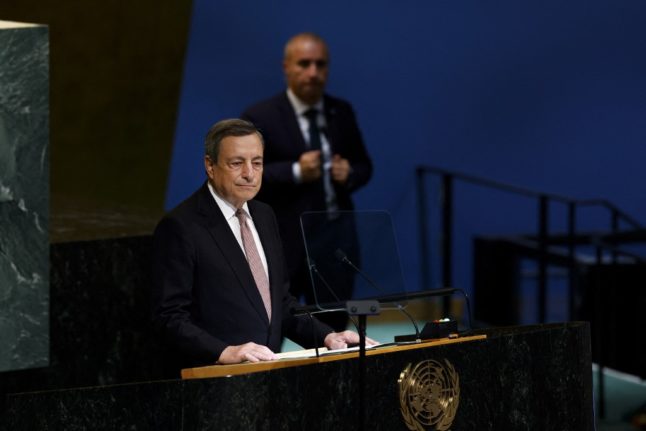Outgoing Italian Prime Minister Mario Draghi and his likely successor have criticised Germany’s €200-billion move to shield its citizens from rising energy prices, saying Europe must act together to tackle the energy crisis.
“Faced with the common threats of our times, we cannot divide ourselves according to the amount of room in our national budgets,” Draghi said in a press release on Thursday.
READ ALSO: Electricity bills in Italy to rise by 59 percent, warns power regulator
The statement came after Germany introduced a €200-billion ($194-billion) shield to protect households and businesses from soaring energy prices,
The measure was Germany’s move in what the country’s Finance Minister Christian Lindner described as an “energy war over prosperity and freedom” with Russia.
“The energy crisis requires a response from Europe to reduce costs for families and businesses, to limit exceptional gains made by producers and importers, […] and to keep Europe united once against in the face of an emergency,” Draghi said, commenting on Germany’s move.
At a meeting of EU energy ministers in Brussels on Friday, Italy’s Roberto Cingolani reiterated Rome’s support for an EU-wide cap on the price of gas – something Draghi has long been calling for.
“Everyone has recognised that there is a priority at the moment, which is to bring down the cost of gas. But there is also a second priority, [that is] to avoid creating a shortage of gas in doing so,” Cingolani said.
READ ALSO: Portofino mayor offers residents €400 to offset energy bills
Draghi will only be in office for a few more weeks, after which he will likely be replaced by Giorgia Meloni, whose far-right Brothers of Italy party triumphed at last Sunday’s elections.
Like Draghi, Meloni has backed the idea of a European price cap thus far.
Ahead of Friday’s energy meeting in Brussels, the soon-to-be new Italian PM also appeared to criticise Germany as she called for “an immediate European response” to the energy crisis.
“No member state can offer effective and long-term solutions on its own in the absence of a common strategy, not even those that appear less financially vulnerable,” she added.



 Please whitelist us to continue reading.
Please whitelist us to continue reading.
Member comments